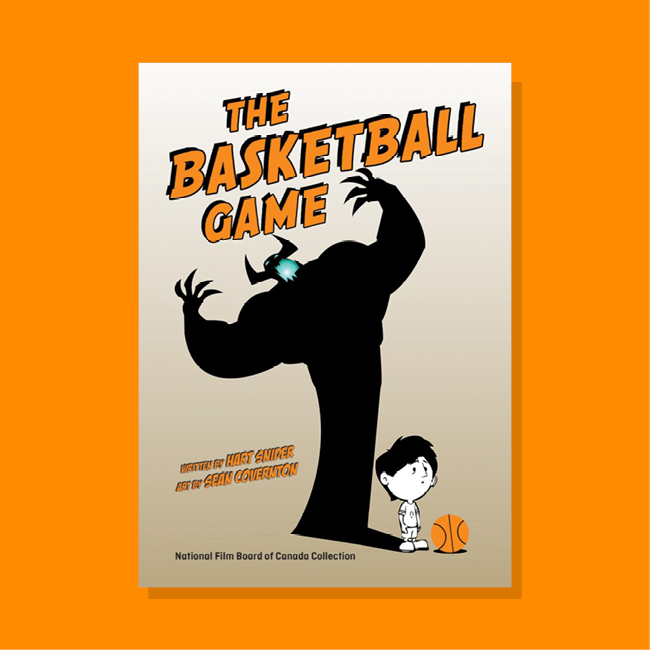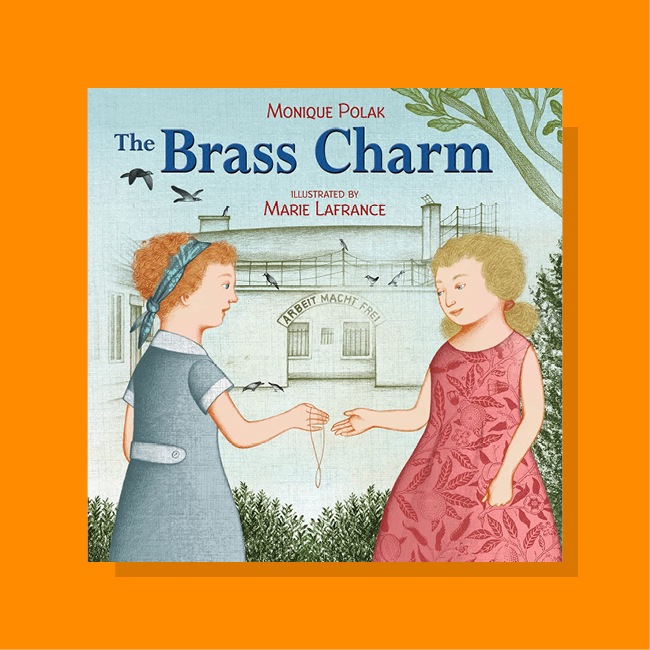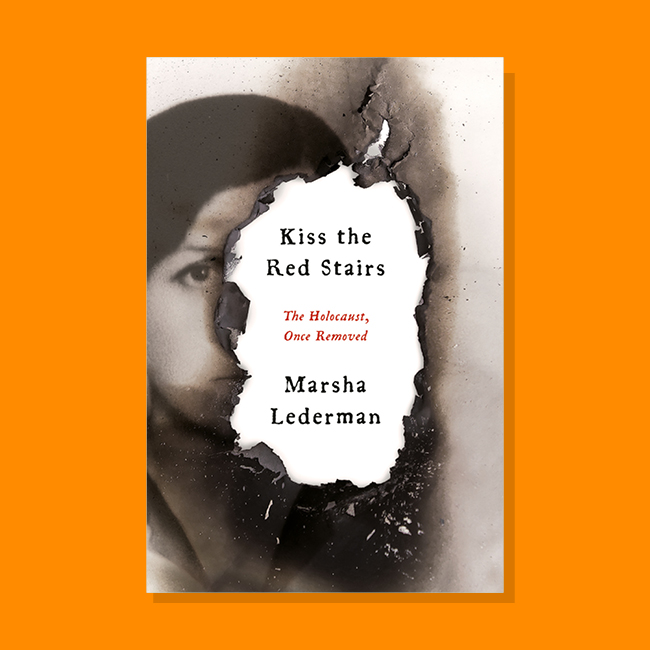Today is International Holocaust Remembrance Day, designated by the UN to mark the anniversary of the liberation of Auschwitz-Birkenau. Here are some books for youth about the Holocaust that can help them understand and talk about this dark chapter in world history.

The Basketball Game by Hart Snider, illustrated by Sean Covernton
Civil rights leader, Mahatma Gandhi, is believed to have said, “An eye for an eye makes the whole world blind.” He was referring to violence, to imply that if an act of hate was responded with hate then it would just spread more hate. What if, instead, hate is nipped in the bud and a space is created for knowledge and growth? Hart Snider’s graphic novel, The Basketball Game, is based on a true story of when he was nine and attended Jewish summer camp for the first time. That camp was memorable because of some very particular visitors that were invited to play. A teacher by the name of Jim Keegstra, in a nearby small town called Eckville, was fired for spreading anti-Semitic views in his classroom, where he told his students that the Holocaust was a hoax. To make matters worse, he was also the nearby town’s mayor. To help combat Keegstra’s lies the Eckville and Jewish communities decided that the best path forward was to invite the students taught by Keegstra to the summer camp for a day of fun and fellowship. What transpires in this graphic memoir is a basketball game for all-time. This is poignant tale of the power of community as a means to rise above hatred and bigotry. In the end, as is recognized by the kids playing the basketball game, we’re all in this together. Grades 8-12

The Brass Charm by Monique Polak, illustrated by Marie Lafrance
Talking about the Holocaust with kids is difficult, but also necessary. In this book, a young girl learns about the Holocaust through her own grandmother who tells her story of survival. Tali is staying at her grandmother’s after a storm demolishes her house. She is upset at losing everything, but her mother reminds her that people have survived worse, including her grandmother, who survived World War II. Oma has never talked about her painful past, but that night, she tells Tali her story of Holocaust survival, the brass monkey charm that she was given in the camp, and a message of kindness and perseverance in the face of disaster. The book includes an author’s note, in which Monique Polak explains how it was inspired by her mother’s true experience at Terezin, a Nazi concentration camp in what is now the Czech Republic. Grades 1-3

Kiss the Red Stairs: The Holocaust, Once Removed by Marsha Lederman
Kiss the Red Stairs isaward-winning journalist Marsha Lederman’s memoir about how her parents survived the Holocaust and the pain and suffering they went through during World War II. Lederman was five when a simple question led to a horrifying answer. Sitting in her kitchen, she asked her mother why she didn’t have any grandparents. Her mother told her the truth: the Holocaust. Decades later, her parents dead and herself a mother to a young son, Lederman began to wonder how much history had shaped her own life. Reeling in the wake of a divorce, she craved her parents’ help. But in their absence, she was gripped by a need to understand the trauma they suffered, and she began her own journey into the past to tell her family’s stories of loss and resilience. Kiss the Red Stairs is a compelling memoir told with a great deal empathy and humour by Lederman who leads readers on their own journey of understanding and compassion about Holocaust survival, intergenerational trauma, divorce, and discovery. Grades 11-12
